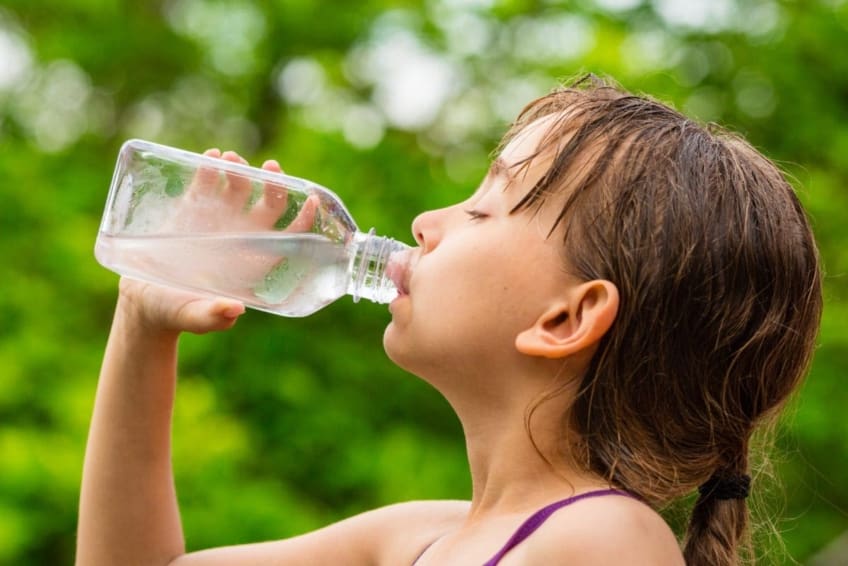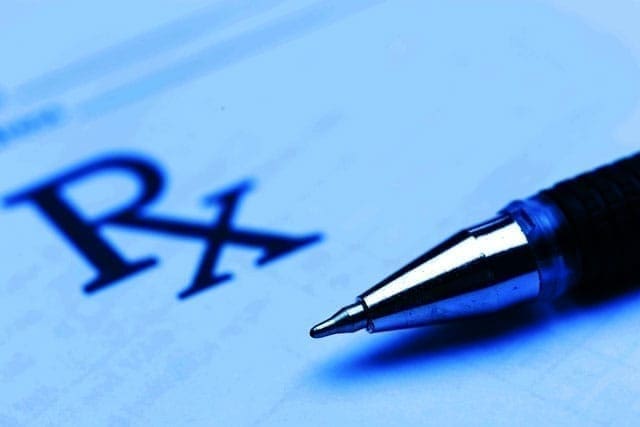
Dehydration is when your body doesn’t have enough fluids to work properly. It happens when you lose more fluids than you take in. This could happen on a hot day if you sweat a lot, or if you are sick with vomiting or diarrhea.
You can usually treat mild dehydration at home by drinking more fluids. Moderate cases may need to go to the hospital to receive intravenous (IV) fluids. Severe dehydration is a medical emergency. It could be fatal if not treated.
Dehydration can happen to anyone at any age. Infants, young children, and older adults are more at risk of becoming dehydrated.


Stomach viruses are easy to catch and can make you feel miserable. For mild cases, I recommend simple home treatment. Read More
Path to improved health
Your body is made up of 55%-60% water. You need to drink a lot so it can carry out its normal functions. The average adult needs about 3 quarts of water every day. When you don’t get enough water because of illness or for other reasons, you may start to experience dehydration.
Causes
Common causes of dehydration in healthy adults include:
- sweating too much (especially in hot weather)
- fever
- vomiting
- diarrhea
Symptoms
Symptoms of dehydration depend on your age and how badly dehydrated you are.
Signs of dehydration in babies or young children include:
- dry mouth and tongue
- crying without tears
- no wet diapers for 3 hours or more
- high fever
- sunken eyes
- being unusually drowsy or sleepy
Signs of mild to moderate dehydration in adults include:
- feeling thirsty
- dry or sticky mouth
- dry skin
- not urinating much
- darker yellow urine
- headache
- muscle cramps
Signs of moderate to severe dehydration include:
- dizziness or light-headedness
- irritability or confusion
- rapid heartbeat
- rapid breathing
- listlessness
- delirium
- fainting or unconsciousness
Treatment
Mild to moderate dehydration can usually be treated at home. Here are things you can do to feel better.
- Sip water.
- Suck on ice cubes or ice pops.
- Slowly drink a sports drink that contains electrolytes.
- Don’t drink anything with caffeine, including coffee, tea, or colas. Caffeine may cause you to urinate more.
Moderate to severe dehydration needs medical attention. Go to an emergency room or call 911. Untreated severe dehydration can cause seizures, permanent brain damage, and even death.
Call your family doctor if you’re not sure if your symptoms are serious enough to go to the hospital.
Prevention
In general, adults can prevent dehydration just by drinking when they are thirsty. Eating foods high in water content, such as fruits and vegetables, also help.
Drink more fluids when you need to, including when:
- The weather is hot, especially if you’ll be outside.
- You are exercising or sweating a lot.
- You have a fever, diarrhea, or are vomiting.
Don’t wait for signs of dehydration to start drinking more. Plan ahead and always make sure you have access to plenty of water.
Things to consider
Some people are at greater risk of becoming dehydrated. They include:
- Infants and young children
- Older adults
- People with chronic illnesses such as diabetes
- People taking certain medicines, such as diuretics.
If you are at greater risk or care for others who are, always plan ahead. Keep plenty of water with you at all times to prevent dehydration.
Left untreated, dehydration can lead to serious complications. These include:
- Heat-related illness such as heat cramps, heat exhaustion, or heatstroke.
- Kidney problems such as kidney stones or kidney failure.
- Electrolyte imbalances that can lead to heart rhythm disturbances and seizures.
- Shock, coma, or death.
Questions to ask your doctor
- Could there be an underlying cause that led me to become dehydrated?
- How can I keep from getting dehydrated in the future?
- Can I take my regular medicines when I’m dehydrated?
- Can I drink alcohol without getting dehydrated?
- I work outside in the summer. What can I do to prevent dehydration?
![]()
Copyright © American Academy of Family Physicians
This information provides a general overview and may not apply to everyone. Talk to your family doctor to find out if this information applies to you and to get more information on this subject.







